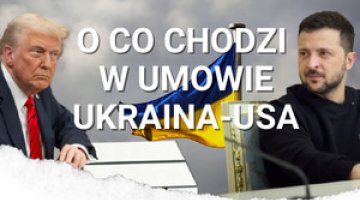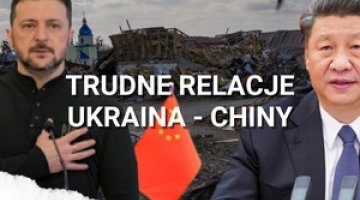Ukraine in search of a ‘third way’ in foreign policy
On 9 March, Ukraine’s foreign minister Kostiantyn Hryshchenko published an article on the objectives and tasks of his country’s foreign policy. He sees "a subjective disinclination and an objective lack of resources" for further enlargement within the EU, as well as increasing political pressure from Russia, and so he has called for the strengthening of economic ties with emerging markets, including China and Brazil, and closer political relations with Turkey.Although in the minister’s opinion, Ukraine should set up free trade with the EU and continue the dialogue on visa waivers, it should also open up economically to new markets. This is in order to give Kyiv room for manoeuvre in the international arena, minimise the impact of political conditions on economic relations with Russia, and (in Hryshchenko’s words) allow Ukraine to “avoid the role of a beggar” in its relations with the EU.
- Ukraine's search for a ‘third way’ in foreign policy is not new. This concept arose during the presidency of Viktor Yanukovych (as of February 2010), in connection with deteriorating relations with the EU and mounting pressure from Russia. While its implementation could bring about real economic results, cooperation with China and Brazil would not balance the political influence of Russia in Ukraine, and would not be an alternative to integration with the EU. It seems that Hryshchenko’s article has two immediate objectives: to demonstrate before the parliamentary elections in Ukraine (scheduled for this October) that Yanukovych’s administration conducts an active foreign policy, and to show Brussels that the political component of the EU’s relations with Kyiv is less important than economic and visa matters.
- The activity Ukraine has exhibited in its dealings with Turkey, China and Brazil has only slightly influenced their economic cooperation. In 2011 China was Ukraine’s third biggest trade partner, and Turkey the sixth, with shares in Ukrainian exports of 5.5% and 3.2% respectively. An increase in trade can only be observed with Beijing (from US$6 billion in 2008 to US$8.5 billion in 2011), although this is mostly due to China’s general economic expansion worldwide, and not the result of any effective diplomacy by Ukraine. In the case of Turkey, the value of trade is still lower than it was before the financial crisis (from US$6.5 billion in 2008 to US$5.2 billion in 2011), however Ukraine has been maintaining a positive balance of trade with it (US$2.3 billion). Brazil is regarded as a potentially important partner for Ukraine in the area of space research, but their chief joint project (to launch a Ukrainian Cyclone-4 rocket into orbit) has been repeatedly postponed.
- Although the share of non-EU countries and the CIS in Ukraine’s total trade turnover is almost 30%, Turkey, China and Brazil are not among the ten largest investors in Ukraine. Kyiv's policy has not been very effective at attracting investment or using the Chinese loans. In 2010, Beijing offered Kiev a credit line of US$4 billion, but only two projects have been carried out with it: the construction of infrastructure and a high-speed train between the Boryspol airport and Kyiv, and the modernisation of the Donbass mines, to a total amount of around US$1 billion.





